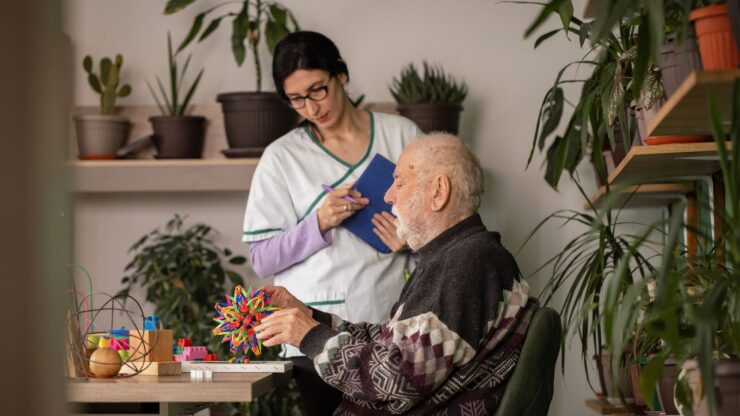
Alzheimer’s & Brain Awareness Month: An Overview of The Types of Dementia
June is Alzheimer’s & Brain Awareness Month and it’s important to understand that Alzheimer’s disease is the most common cause of progressive dementia in older adults. Dementia is an umbrella term used to describe a range of neurological conditions affecting the brain that get worse over time.As we age, it’s normal to lose some neurons in the brain, there are several other causes of dementia and common types of dementia that we’ll be discussing further in this article.
Most dementia cases in older people are Alzheimer’s disease. Early signs usually include difficulty in forming new memories of recent events, difficulty finding the right words and figuring out problems. Below are the common forms of dementia, including Alzheimer’s disease:
- Alzheimer’s disease – the most common form of dementia diagnosis among older adults. It is caused by changes in the brain, including abnormal buildups of proteins. Alzheimer’s disease patients have plaques and tangles in their brains. The progressive build-up of abnormal clumps of protein causes damage to the nerve cells in the brain.
- Symptoms include wandering and getting lost, repeating questions, problems recognizing friends and family, and impulsive behavior.
- Vascular dementia – this type of dementia is caused by damage to the vessels that supply blood to your brain. Blood vessel problems can cause strokes or affect the brain in other ways, such as by damaging the fibers in the white matter of the brain.
- Symptoms include problem-solving, slowed thinking, and loss of focus and organization.
- Lewy body dementia – Lewy bodies are abnormal balloon-like clumps of protein that have been found in the brains of people with Lewy body dementia, Alzheimer’s disease, and Parkinson’s disease. This is one of the more common types of progressive dementia.
- Common symptoms include acting out one’s dreams in sleep, seeing things that aren’t there (visual hallucinations), and problems with focus and attention. Other signs include uncoordinated or slow movement, tremors, and rigidity (parkinsonism).
- Frontotemporal dementia – this is a group of diseases characterized by the breakdown of nerve cells and their connections in the frontal and temporal lobes of the brain. These are the areas generally associated with personality, behavior, and language.
- Common symptoms include difficulty planning and organizing, impulsive behaviors, emotional flatness or excessive emotions, shaky hands, problems with balance and walking, and difficulty making or understanding speech.
Dementia can affect many body systems, and therefore, the ability to function. Dementia can lead to poor nutrition, pneumonia, an inability to perform self-care tasks, personal safety challenges, or death. There is currently no cure for these types of dementia, but there are measures we can take to slow the progression of the disease as much as possible.
There’s no doubt that home care for Alzheimer’s patients can be difficult, but the Alzheimer’s care professionals at LifeWorx, are equipped and fully trained to take care of a wide variety of responsibilities and ensure your loved one has the best quality of life as possible. Contact us today and let us help you and your family find the care your loved one needs.
Find your peace-of-mind.
Explore LifeWorx’ in-home elder care services.
















